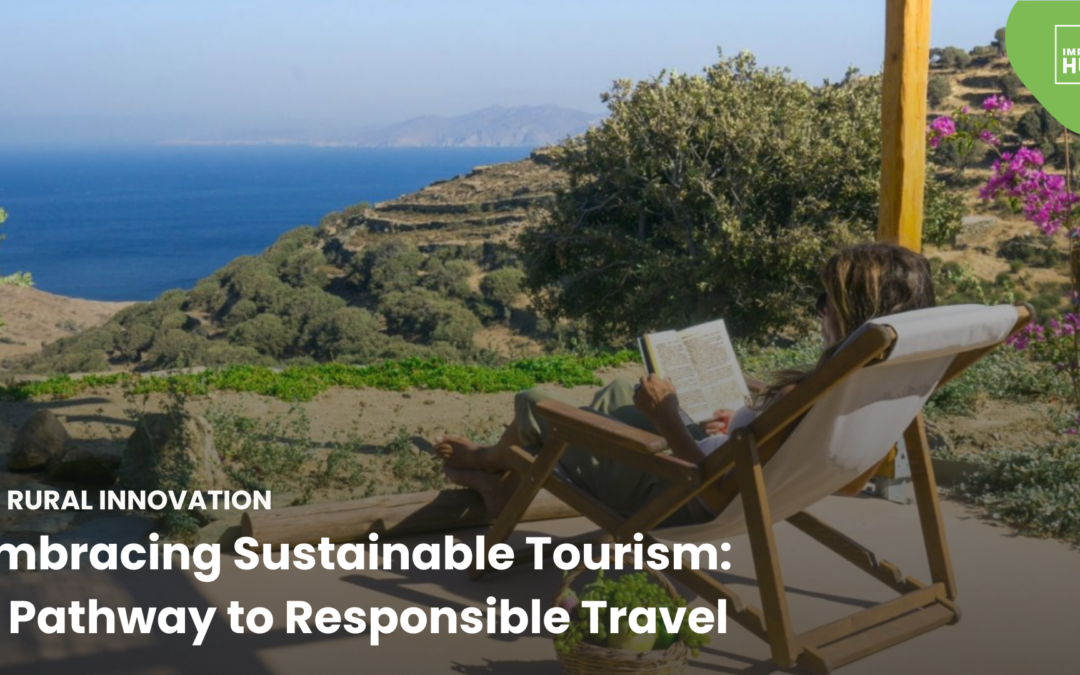In recent years, the global tourism industry has experienced exponential growth, offering unparalleled opportunities for exploration and cultural exchange. However, this rapid expansion has come at a cost to our environment and local communities. As travelers, it’s crucial that we recognize the impact of our choices and embrace sustainable tourism practices to preserve the destinations we love for future generations.
Sustainable tourism, also known as responsible tourism or eco-tourism, is about traveling in a way that minimizes negative impacts on the environment, respects local cultures, and benefits host communities economically. It’s a holistic approach that seeks to balance the needs of travelers, local communities, and the environment.
Embracing sustainable tourism offers a multitude of benefits for both travelers and destinations:
Preservation of Natural Resources: By reducing our carbon footprint, minimizing waste, and supporting eco-friendly accommodations and activities, we can help protect fragile ecosystems and biodiversity.
Cultural Preservation: Engaging in respectful interactions with local communities, supporting traditional crafts and practices, and learning about indigenous cultures helps preserve cultural heritage and traditions.
Community Empowerment: Sustainable tourism can empower local communities by providing economic opportunities, creating jobs, and supporting small businesses, thus contributing to poverty alleviation and social development.
Enhanced Travel Experiences: Sustainable travel allows for meaningful connections with destinations and their people, fostering authentic experiences and deeper cultural understanding.
Practical Tips for Sustainable Travel:
Choose Sustainable Accommodations: Opt for eco-friendly hotels, lodges, or homestays that prioritize energy and water conservation, waste reduction, and local community engagement.
Minimize Environmental Impact: Practice responsible waste management, conserve water and energy, and support businesses that prioritize sustainability in their operations.
Respect Local Cultures and Traditions: Educate yourself about the customs and etiquette of the destinations you visit, support local artisans and cultural events, and engage respectfully with local communities.
Support Responsible Tour Operators: Seek out tour operators and guides that prioritize sustainable practices, respect wildlife and natural habitats, and contribute to local conservation efforts.
Offset Your Carbon Footprint: Consider offsetting the carbon emissions from your travels by supporting carbon offset projects or opting for carbon-neutral travel options.
A Sustainable Accommodation Example: Tinos Eco Lodge
Nestled amidst the picturesque landscape of Tinos Island, the Eco Lodge stands as a testament to responsible tourism. Founded by passionate eco-advocates, the lodge represents a significant departure from traditional holiday accommodations. Instead of maximizing visitor numbers or luxury, the focus here is on sustainability and minimal environmental impact. Every element of its construction, from the energy-efficient designs to the use of local materials, embodies circular economy principles. By offering workshops on permaculture and sustainable living, the lodge also educates its guests, encouraging them to adopt a more environmentally-friendly lifestyle. The result? An innovative model that challenges the status quo of the tourism industry and showcases the tangible impact of eco-entrepreneurship.
As travelers, we have the power to shape the future of tourism by making conscious choices that prioritize sustainability and responsibility. By embracing sustainable tourism practices, we can protect the planet, preserve cultural heritage, and create positive impacts for local communities. Let’s embark on a journey of responsible travel and leave a legacy of sustainability for generations to come.
Join the movement towards sustainable tourism and be a part of the solution!



